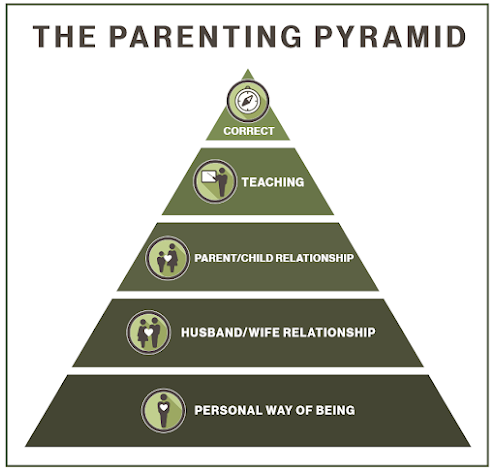I Was a Great Parent Until I Became a Parent - Guide
I took an interest in child development and parenting years before I became a mother. I read all the books and knew all the best techniques and was ready to excel in parenthood and produce amazing children I could be proud of. While I do feel this early preparation was helpful to me, I have many times come to realize that, like the old G.I. Joe cartoon used to say, “Knowing is only half the battle!” Okay, that’s all fine and good but what’s the other half? Oh, DOING. So, I have to successfully apply all of these parenting skills that are so beautifully laid out in those books and articles I had prepared myself with.
Bummer!
Real-life hits and it’s harder than you thought it would be
when you read through those nicely worded scenarios printed in a book.
What you dreamed…
You come home from work, the house is clean and your kids are
waiting at the kitchen table with a meal they have prepared. They are stellar
because you taught them to be that way, naturally.
What happens in real life…
You come home and find wrappers and trash littered around your couch and your kids are eating in the living room and watching TV when you know, THEY KNOW they’re not supposed to. Frustrated, you say something like, “What have you been doing all day?! How many times do I have to tell you __________?” You think thoughts like, don’t they understand how hard I work? Maybe they say something equally irritating like, “I was tired or bored” or maybe they argue back because you attacked them. Then once you calm down the guilt sets in about the things you wish you hadn’t said.
The books made it sound so easy.
Parenting can be frustrating and sometimes it feels as if
your kids are in some kind of competition to see how difficult they can make
things for you. It’s easy to lose your temper and do or say something you
regret. It’s hard to take the time to listen and teach. The patient, well-intentioned responses seem to fly out the window and you’re left feeling worn
out and guilty.
How can we become more effective parents?
On The Center for Parenting Education website, it gives some
ideas of how to evaluate your effectiveness as a parent with a question and
some answers for both effective and ineffective parents:
“Can your children predict with great accuracy what will
happen as a result of their misbehavior?
Effective parents discuss the rules with their children and make sure that they understand the expectations. They also make sure that consequences are understood and follow through with them no matter how they are feeling. In addition, effective parents help children to see that they chose the consequence by their behavior.
Ineffective parents tend to assume that children
understand expectations. Parents often forget the rule themselves or enforce
them sporadically. Children often walk on eggshells, afraid to make a mistake.
This anxiety can affect both self-esteem and self-confidence.”
I am reminded of observing my oldest daughter when she was
about two years old, repeating the words, “no, no, no” WHILE she was acting out
the behavior, I had told her NOT to do. I remember telling my older, wiser
sister at the time and hearing her laugh about it. It was then I realized that
my repeated instructions weren’t being understood by my daughter. Instead of learning, she wasn’t supposed to do something. She learned that when she did ________,
she should say what mommy says which was “no, no, no”. It was one of those
moments when you look into the mirror as a parent and have a moment of
reflection. How do I actually teach her not to do what I don’t want her to do?
How do we avoid spending our days on the battlefield
constantly correcting the same behaviors that make our blood boil? How do we
avoid the long days of repeating “no, no, no”?
An even more important question to ask might be, “how do I
spend my time as a parent effectively teaching so I don’t get caught in a trap
of having to constantly correct?”
In Chapter 10 "Lessons to Guide Your Parenting" in
the book Between Parent and Child by Dr. Haim G. Ginott, he says:
“What is the goal of parenting? It's to help a child grow up
to be a decent human being, a mensch, a person with compassion, commitment, and
caring. How does one go about humanizing a child? Only by using humane methods,
by recognizing that the process is the method, that ends do not justify the
means, and that in our attempt to be effective in getting children to behave,
we do not damage them emotionally.
Children learn what they experience. They are like wet
cement. Any word that falls on them makes an impact. It's therefore important
that parents learn to talk to children in a way that is not enraging, doesn't
inflict hurt, doesn't diminish their children's self-confidence, or cause them
to lose faith in their competence and self-worth.
Parents set the tone of the home. Their response to every
problem determines whether it will be escalated or de-escalated. Thus, parents
need to discard a language of rejection and learn a language of acceptance.
They even know the words. They heard their own parents use them with guests and
strangers. It's a language that is protective of feelings, not critical of
behavior.” Ginott also brings out these points to help us effectively teach so
we don’t have to constantly correct:
- The
beginning of wisdom is listening.
- Do not
deny your child's perceptions.
- Instead
of criticism, use guidance. State the problem and possible solution.
- When
angry, describe what you see what you feel, and what you expect, starting
with the pronoun "I."
- Praising.
- Learn
to say "no."
- Give
children a choice and a voice in matters that affect their lives.
If we can put some of these points into practice, we can
begin a more empathetic way of communicating that may, in turn, help us to more
effectively teach rather than feeling war-torn on the battlefield of constant parental
correcting.
Resources:
1. The Center for Parenting Education. (n.d.) Effective Versus
Ineffective Parenting: Know the Difference? Retrieved from:
2. Ginott, H.G. (2003). Between Parent and Child. Harmony; Revised,
Updated edition (July 22, 2003).




Comments
Post a Comment